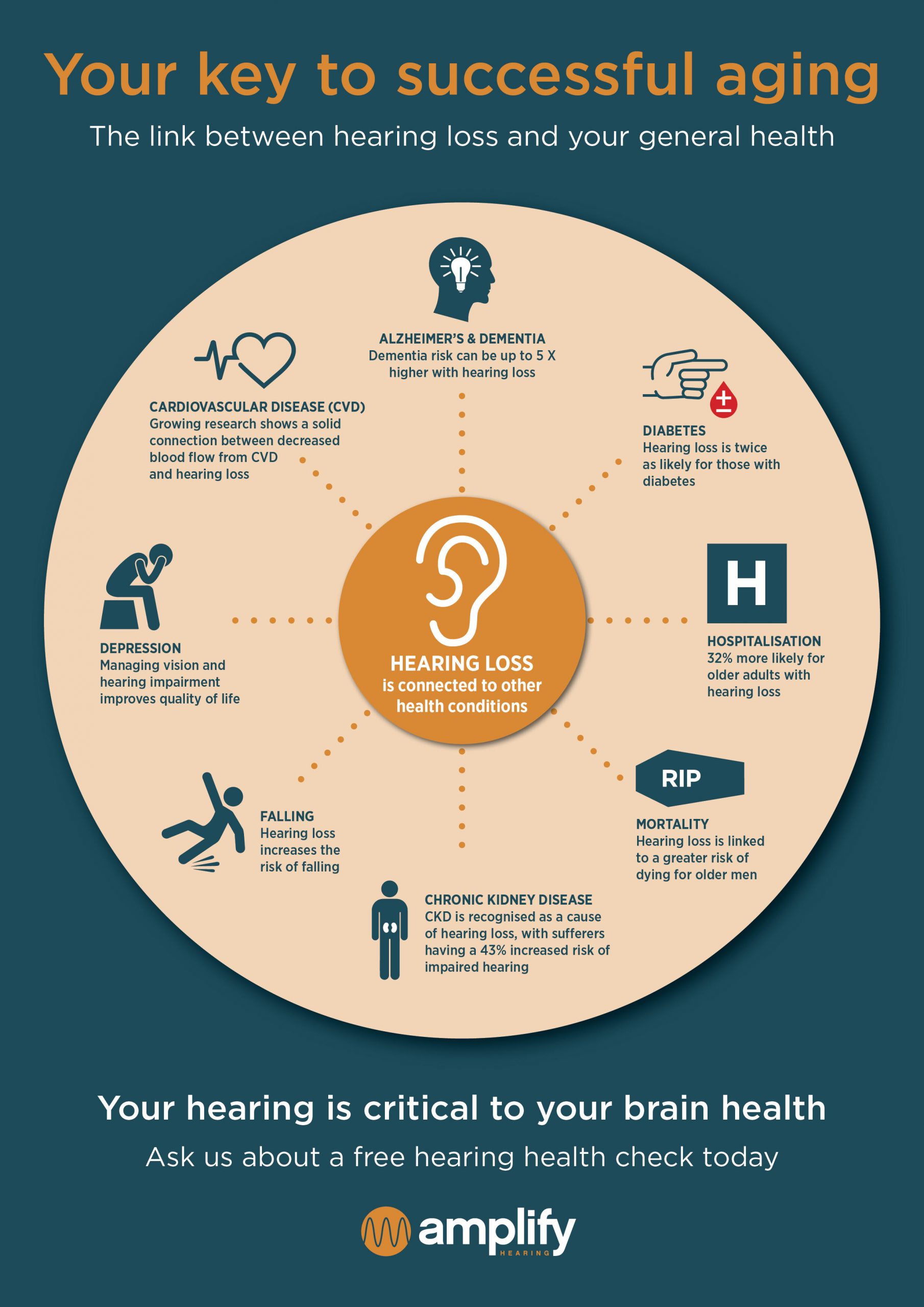)
Why is it important to have regular hearing tests?
For many of us, regular hearing tests aren’t high on the priority list – particularly if you haven’t previously experienced any severe hearing loss or issues. However, periodic hearing tests are incredibly beneficial for all adults – here’s why…
It can help diagnose other medical conditions
When it comes to what causes hearing loss, there’s no single answer. In many cases, age leads to a decline in hearing. However, a range of conditions can also cause tinnitus and hearing loss.
For example, Diabetes can damage the nerves and blood vessels in the ear, reducing oxygen supplies – this can cause hearing loss. In fact, did you know that hearing loss is twice as common in people with diabetes than in those without?
Other diseases and conditions that can cause hearing issues include hypertension (high blood pressure), auto-immune disorders like rheumatoid arthritis and lupus, german measles, mumps and even the menopause.
By ensuring you have regular hearing tests, you can keep on top of any changes that could indicate an underlying issue.
We may be able to stop your hearing from getting worse
As with many conditions, the earlier you identify hearing loss and its causes, the sooner you can get treatment. Often, hearing loss is preventable. And if you’re experiencing mild hearing loss, there’s a high chance you can minimise the chance of it becoming more severe. As an example, if we find early indications of hearing loss, we can offer you advice to reduce the risk of it worsening. This might include wearing earplugs if you work with noisy machinery or attend loud concerts. Alternatively, if there is an underlying medical issue, treating that may limit its impact on your hearing.
In general, finding issues before they become difficult to treat can reduce the damage to your ears and your day-to-day experience.
It can improve your quality of life
And that leads us to our third point – hearing is a crucial part of everyday life for most of us. From appreciating birdsong to communicating with loved ones, our ears allow us to experience and interact with the world around us.
If left untreated, hearing issues can lead to difficulties in work, school, and personal relationships. It may also impact your emotional and mental well-being. Studies suggest that hearing issues can contribute to depression, anxiety, Alzheimer’s disease and dementia..
By scheduling regular appointments with an audiologist, you can keep track of any changes to your hearing. Not only will this help you minimise the risk of the issue worsening but it can also give you the chance to access support. You may find that hearing aids give you a new lease of life, allowing you to embrace and enjoy sounds you might have been missing. If this is the case, your audiologist will be able to help you find the right kind of hearing aid for your needs.
How often should you get a hearing test?
We’ve discussed the benefits of regular hearing tests – but what counts as regular? You may be aware of the industry standard to have a vision test every two years, but what about an appointment with your audiologist?
If you’re a healthy adult who hasn’t noticed any decline in your hearing, a hearing check-up once every three to five years should be fine. If you’re aged 50 years or over, it is recommended that you have your hearing tested annually.
Of course, if you’re struggling to hear or experiencing ear discomfort in your everyday life, it’s a good idea to arrange a hearing test as soon as possible.

Book a hearing test with a local professional
At Amplify, we’re here to help you access the audiology support you need. We work with independent opticians to offer you free hearing tests and advice. If you’re ready to arrange a hearing check-up, find your local practice and book a test today.